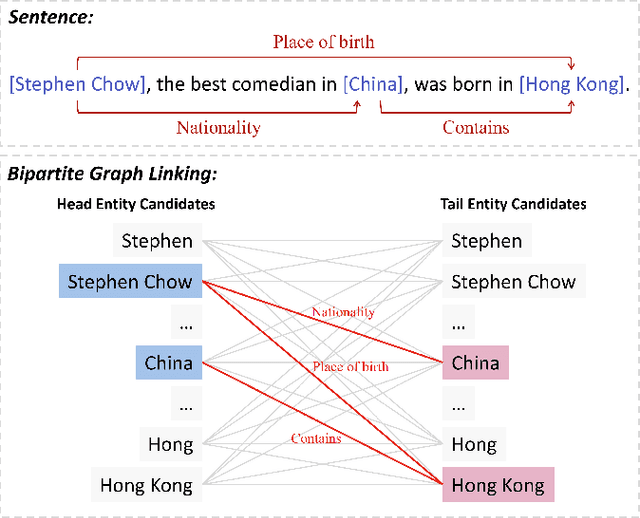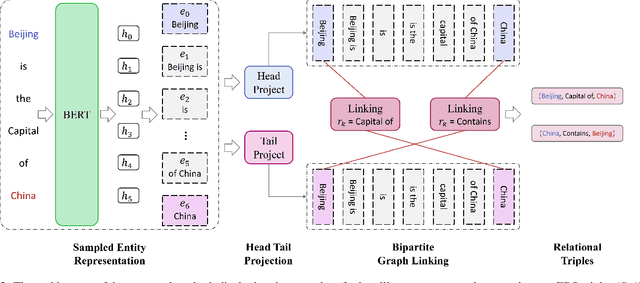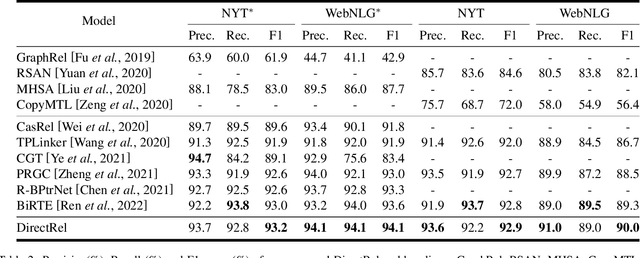Relational Triple Extraction: One Step is Enough
Paper and Code
May 11, 2022



Extracting relational triples from unstructured text is an essential task in natural language processing and knowledge graph construction. Existing approaches usually contain two fundamental steps: (1) finding the boundary positions of head and tail entities; (2) concatenating specific tokens to form triples. However, nearly all previous methods suffer from the problem of error accumulation, i.e., the boundary recognition error of each entity in step (1) will be accumulated into the final combined triples. To solve the problem, in this paper, we introduce a fresh perspective to revisit the triple extraction task, and propose a simple but effective model, named DirectRel. Specifically, the proposed model first generates candidate entities through enumerating token sequences in a sentence, and then transforms the triple extraction task into a linking problem on a "head $\rightarrow$ tail" bipartite graph. By doing so, all triples can be directly extracted in only one step. Extensive experimental results on two widely used datasets demonstrate that the proposed model performs better than the state-of-the-art baselines.
 Add to Chrome
Add to Chrome Add to Firefox
Add to Firefox Add to Edge
Add to Edge